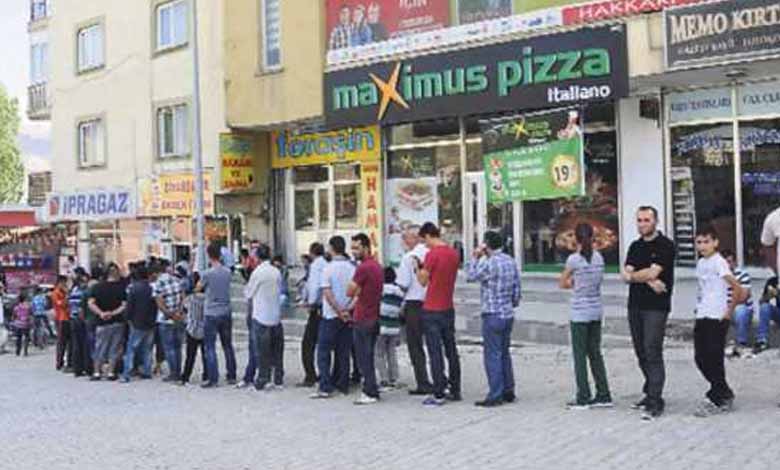Thousands of Turks queued for bread despite high prices

Despite the rain, Turkish reports indicate that citizens flocked to the bread stalls, where cheap bread was sold. Citizens lined up in long lines in front of the bread stalls in many parts of Ankara.
On Saturday, social media platforms and Turkish newspapers reported thousands of Turks were standing in front of stalls in the capital Ankara, waiting to receive bread after a 50-cent increase.
A report in the Turkish newspaper ART said: Citizens are struggling to survive the high cost of living and rising food prices, she said, adding that they are seeking treatment at bakery stalls, where cheap bread is sold.
Despite the rain, citizens lined up in front of the Ankara municipality’s bread stalls, the newspaper said.
Bread in the rain
Future Party spokesman Serkan Ozgan tweeted a picture of a bread line from Sincan in Ankara, saying: “The video came from a friend we worked with in the Future Party”.
He added: “People line up in lines in the rain in Ankara in Sincan despite the rain! This is the situation all over the country. After 19 years (preparation) they consider that worthy of naming the nation as the “new economy model” Oh, sorry!”
He continued: “Once a day, we are tired”.
At the same time, a long line of people was seen in front of the bread stall at Yasil Kozak Kadisi in the Mamak district of Ankara, the newspaper said.
An eyewitness who observed the bread line scene said: “Every day again and again.. We’re tired. Flour has become on the black market, pointing out that 50 kg of flour now costs 420 Turkish lira, oil costs 100 Turkish lira and the cheapest fuel for cars is 8 Turkish lira.
House rents have also risen dramatically. The price of the mince became 70 Turkish lira. Please, we cannot keep up with anything as a nation”.
Turkey is suffering from a widespread economic collapse due to Turkish President Recep Tayyip Erdogan’s hostile policies abroad, which has raised many problems and caused Turkey to become embroiled in conflicts due to his ambitions in Libya and Syria, as well as the Eastern Mediterranean region, America, and Europe.












